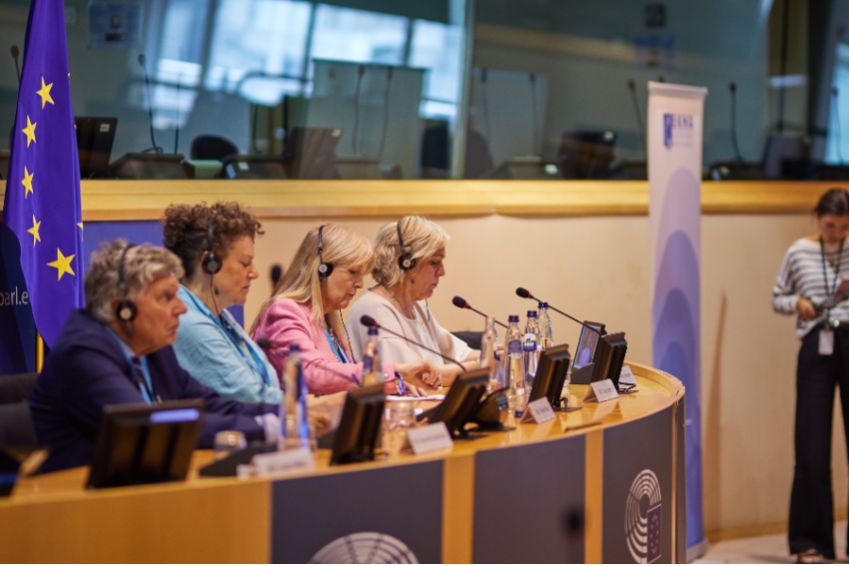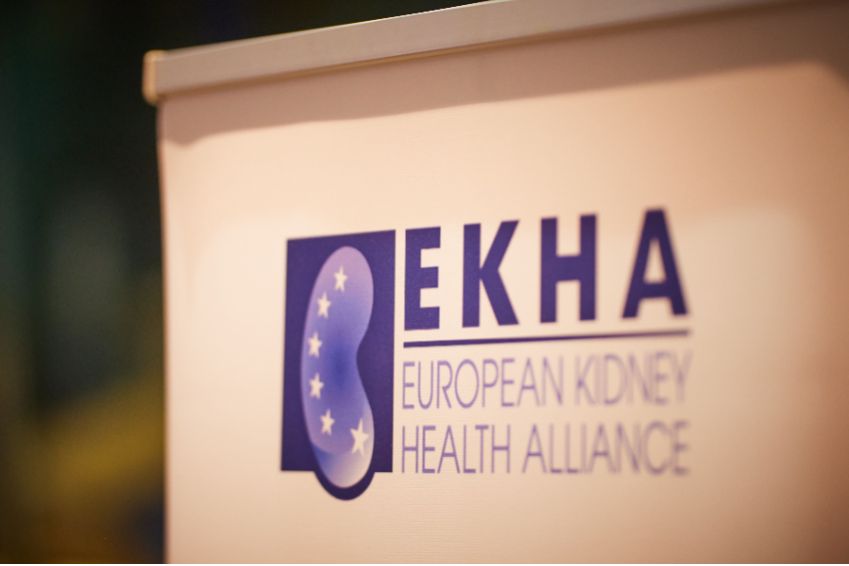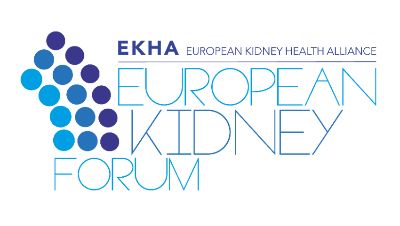The European Kidney Health Alliance (EKHA), which represents over 30 international and national organisations involved with kidney care, organised a major event bringing together politicians and patient groups in the European Parliament. The 2023 European Kidney Forum shone a light on the environmental challenges of treatments for chronic kidney disease (CKD). The Co-chairs of the European Parliament’s Group for Kidney Health opened the discussions.
“Over 100 million Europeans suffer from CKD and 300 million are at risk,” said Hilde Vautmans MEP (Renew, Belgium). “We need to ease the burden on patients and reduce the impact on the environment.”
Fellow Co-Chair, Ondřej Knotek MEP (Renew, Czechia), underlined that research investment from the EU and by companies was needed to find alternative treatments: "We need more sustainable and patientdriven alternatives developed in Europe. Today, only 25% of new treatments originate in Europe, this is not acceptable.”
EKHA President, Professor Raymond Vanholder, set the scene, outlining the scale of the challenge: dialysis results in CO2 consumption equivalent to 2.5 million return car trips from Brussels to Istanbul. The amount of waste water from dialysis is equivalent to filling 10,000 Olympic swimming pools. In addition, there is a huge amount of plastic waste.
Vanholder said the bi-directional link between climate change and kidney disease has been neglected. Increases in temperature mean more people will suffer from dehydration which can result in kidney damage. Prevention should be the priority, but given the prevalence improved treatments were also needed.

Fiona Loud, Policy Director, Kidney Care UK, looked at the growing costs of home dialysis for patients who faced increased water and energy costs. Better care solutions present a win-win situation relieving the burden on patients and healthcare systems.
The Forum had two lively panel discussions. The first panel discussed some of the current challenges and how existing treatments could be improved.
President of the European Kidney Patients’ Federation (EKPF), Daniel Gallego, said that patients were concerned by the environmental footprint of treatment. He welcomed improvements and said that the patient community could play a role in promoting more environmentally friendly options.
Professor Giorgina Piccoli, Head of the nephrology service at the Le Mans Hospital Centre, France, has identified areas where waste can be reduced. She called on manufacturers, in particular, to look at how packaging and plastic content of products can be reduced. President and Scientific Board Chair of the European Dialysis and Transplant Nurses Association/European Renal Care Association, Dr Ilaria de Barbieri, underlined that nurses are involved in continual quality improvement and are in a particularly strong position to ensure the most efficient (re)use of resources. Understaffed hospitals can find it difficult to make time for environmentally-friendly approaches, but it can be done if there is an institutional commitment to more sustainable practices.
Juozas Olekas MEP (S&D, Lithuania) said that it was very important that the healthcare sector was not overlooked in terms of its environmental impact. Olekas said that all relevant initiatives in the parliament should be looked at to enhance the awareness of CKD and its impact.
The second panel looked at the need for a stronger innovation agenda, with more international collaboration and more support through the EU’s research programmes. ‘Health Care Without Harm Europe’ is an organisation dedicated to making healthcare more sustainable, its Director of Programmes, Arianna Gamba, said that at the moment less than 10% of all plastics has been recycled. Considering the complexity of healthcare waste management, plastic recycling rates in healthcare are potentially even lower. “We can’t recycle our way out of this, we must find solutions upstream”, said Ms Gamba.

Charlotte Roffiaen of Renaloo - a French patient organisation - called for improvements in organ donation and transplantation to reduce the need for dialysis, in particular, the value of sharing best practices between countries. She pointed to the fact that there was a first action plan on organ donation and transplantation in the EU and a second action plan was needed. She hoped that a new European Parliament could push for this to be adopted.
Dr Fokko Wieringa, Principal Scientist, Connected Health Solutions Department, IMEC, The Netherlands, said that if we took 0.3% of what we spend annually on dialysis for the next seven years, we could have much better technologies available by 2030. This requires international collaboration and strategic vision. He gave concrete examples of how to reduce plastics in dialysis machines - through existing technologies, real prospects of removing the needles from the process and the development of a smaller dialysis machine to reduce water use and make it more portable for patients.
Petra Leroy Čadová, Policy Officer for the Commission’s Innovative Health Initiative, Directorate General for Research and Innovation, pointed to various opportunities that exist in the current research programmes that could help in both “greening” of care and improving treatments. She encouraged the association to put new topics on the agenda and highlighted a conference in February 2024 addressing the health impacts of climate change.
In closing the main forum, Vanholder said that we must be realistic about the situation. “We need to find a solution and we need to do it in a coalition involving everyone from patients to industry to healthcare providers and with policymakers, because they have the ability to push for change.”
EKHA’s General Manager, Eveline Scheres, thanked all participants for the lively and inspirational discussion. She said that EKHA is collaborating with the EKPF and the American Association of Kidney Patients, to prepare a declaration of intent for a “moon shot” to propel innovation, the aim is to launch this in Autumn 2023. Borrowing from President Kennedy, she said, “we choose to do things, not because they are easy, but because they are hard”.
In partnership with

This article was produced in partnership with the European Kidney Health Alliance following the European Kidney Health Forum 2023.
Sign up to The Parliament's weekly newsletter
Every Friday our editorial team goes behind the headlines to offer insight and analysis on the key stories driving the EU agenda. Subscribe for free here.